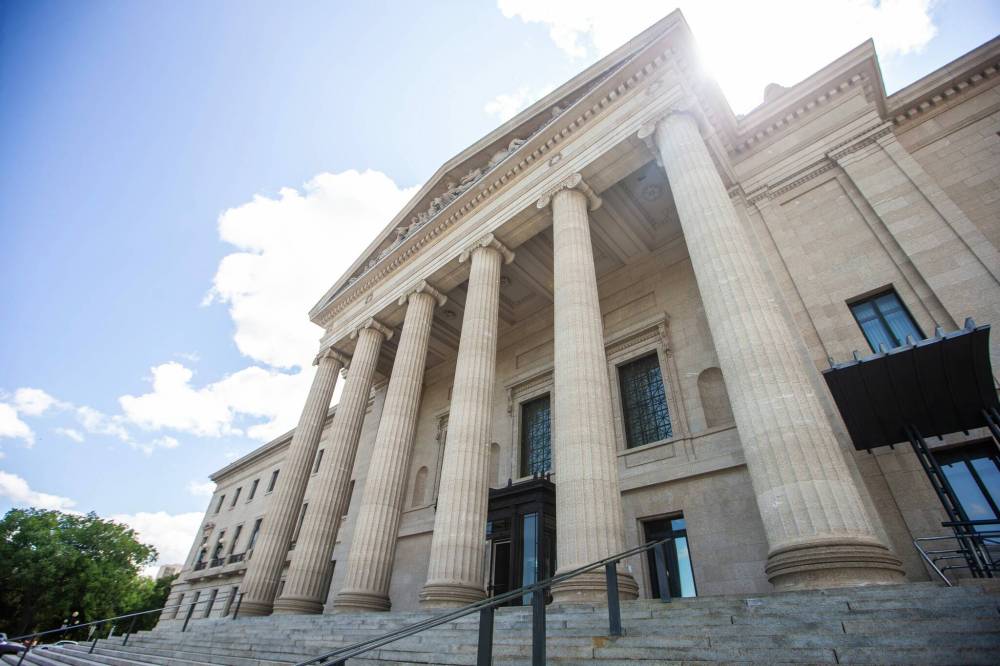The Manitoba NDP broke a major election promise when it unveiled its first provincial budget last week. It promised voters it would keep the previous Tory government’s 50 per cent education property tax rebate.
Less than six months later, it broke that promise.
The NDP is not the first party to renege on an election pledge. It won’t be the last. Breaking election promises feeds into the cynicism many have about politics. Why bother voting when politicians just do whatever they want once in government anyway? It’s a legitimate grievance.

There is a more nuanced answer, though: sometimes breaking an election pledge can be a good thing, especially if it results in a better outcome for society.
Keeping the 50 per cent education property tax rebate was an explicit promise made by the NDP. Party leader and now Premier Wab Kinew repeated it several times during the campaign.
“We’ll keep the 50 per cent residential education property tax rebate — but we’ll take the politics out of it by simply removing the tax off your bill, saving you money each month,” the NDP’s official campaign platform stated.
The party did nothing of the kind. In its 2024 budget, the new government announced it’s eliminating the education property tax rebate and replacing it with a new tax credit.
The 50 per cent rebate will remain for 2024 because the school year is already underway. But beginning in 2025, the rebate (and the existing education property tax credit that predates the 50 per cent rebate) will be replaced with a new “homeowners affordability tax credit” of up to $1,500.
The reason, as stated in the budget: “The Manitoba government recognizes that the current system of school tax-related credits and rebates is overly complex and is not sufficiently targeted to those who need it most. Those with the highest value residential homes are the largest beneficiaries and receive the highest dollar value rebates.”
Makes sense. The fact higher-income Manitobans with more expensive homes benefited the most was one of the major criticisms of the Tory rebate scheme.
Under the new $1,500 tax credit, those with homes worth up to around $400,000 are expected to get a larger rebate compared with the old system. Those with more expensive homes will pay more.
The budget gives a few examples. A home valued at $250,000 with school taxes of $1,316 (based on an average mill rate for Winnipeg) was eligible for $1,008 in rebates under the former system. Under the new one, that homeowner will receive $1,316 (covering the full school tax bill) and will be better off by $308.
A home valued at $850,000 received $2,588 under the old system, which will be reduced to $1,500 under the new one. That homeowner will pay $1,088 more and is probably not happy the NDP broke its election commitment.
The only reason the province is in a deficit is because the former Tory government cut taxes, including income taxes, while running deficits… It was reckless and fiscally irresponsible.
There is another reason why the NDP flip-flopped on the rebate: the provincial government is running a massive deficit and needs the revenue to get back to balance.
The only reason the province is in a deficit is because the former Tory government cut taxes, including income taxes, while running deficits. It borrowed hundreds of millions of dollars (which will have to be repaid by future generations) to pay for those tax cuts. It was reckless and fiscally irresponsible.
Eliminating the rebate and replacing it with the new tax credit will net the province an estimated $37 million in the 2024-25 fiscal year and $148 million in 2025-26. It’s a compromise to offset the damage caused by the Tories’ tax reductions.
In an act of similar fiscal irresponsibility, though, the NDP temporarily cut the fuel tax, which will also contribute to this year’s projected $796-million deficit. The money for that tax cut will have to be borrowed.
So when is it acceptable to break an election pledge and when is it not? There’s no real answer to that. Political parties and candidates ask for voter support based on what they say they would do if they win government. If they renege on those commitments, why should voters ever trust them again? What’s the point of making election promises if they’re so easily discarded post-election?
By the same token, there are legitimate reasons why an election pledge may be dropped. Changing circumstances or unforeseen events, like a recession or pandemic, would qualify. Sometimes what looked like a good idea on the campaign trail is not doable or advisable once in government. In some cases, if breaking an election pledge is for the greater good, it may not be a bad thing.
The NDP’s broken promise on the education property tax rebate probably falls into that category.
tom.brodbeck@freepress.mb.ca

Tom Brodbeck
Columnist
Tom has been covering Manitoba politics since the early 1990s and joined the Winnipeg Free Press news team in 2019.